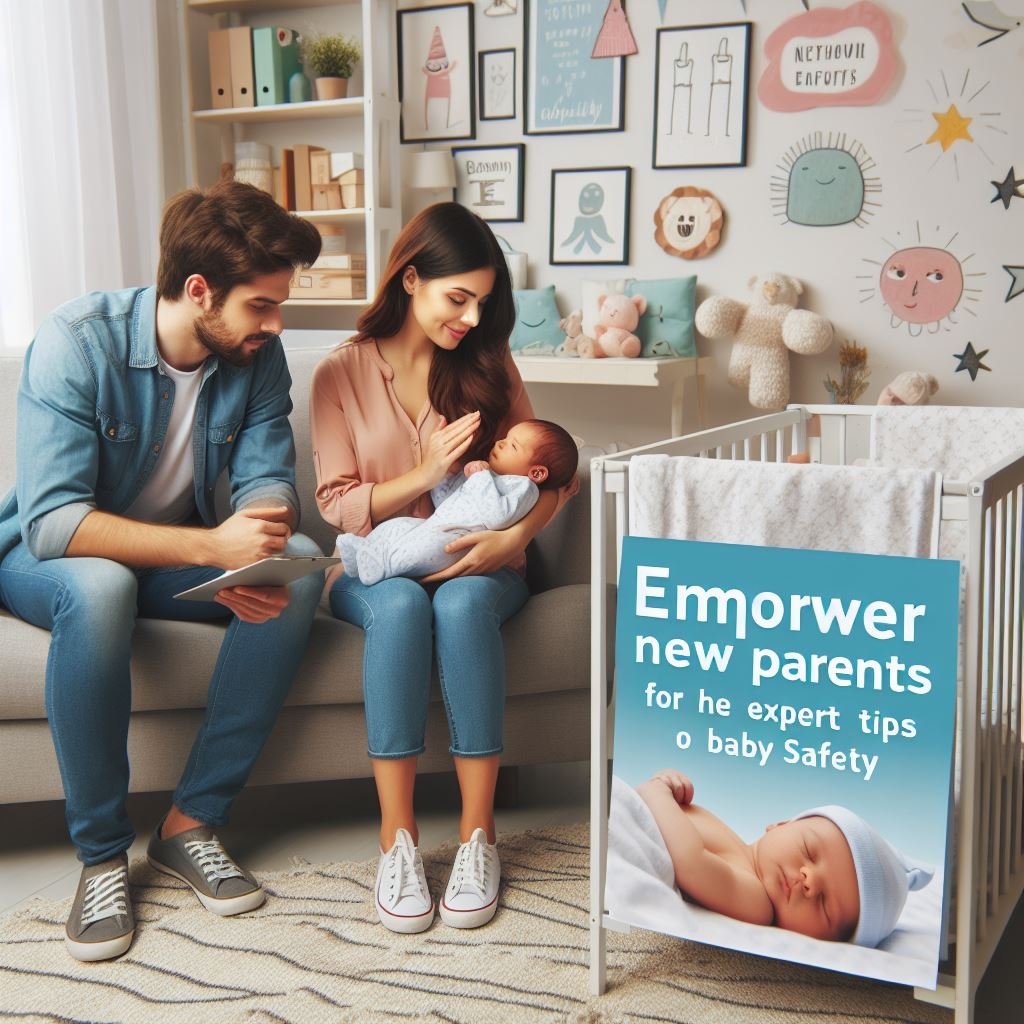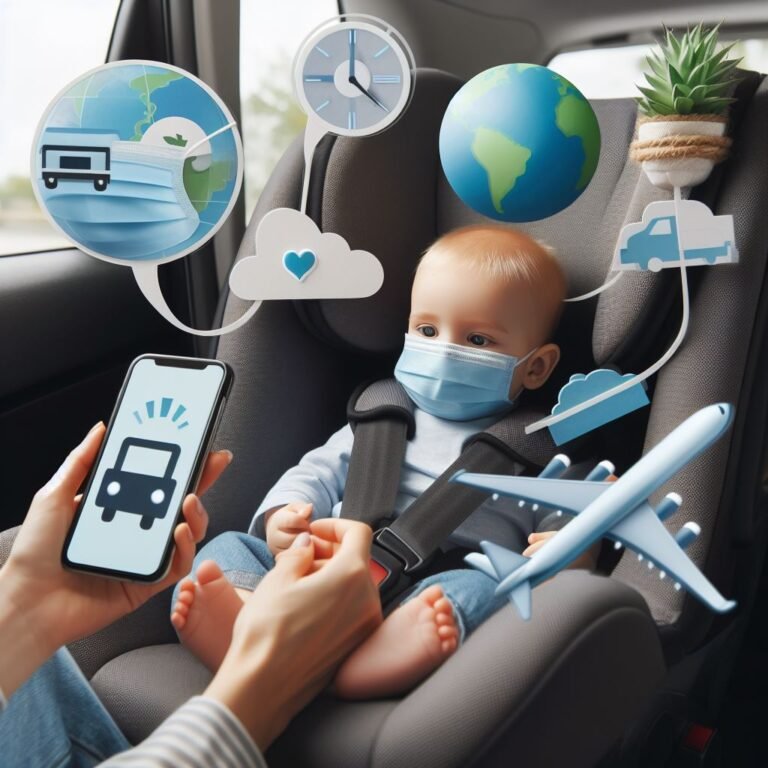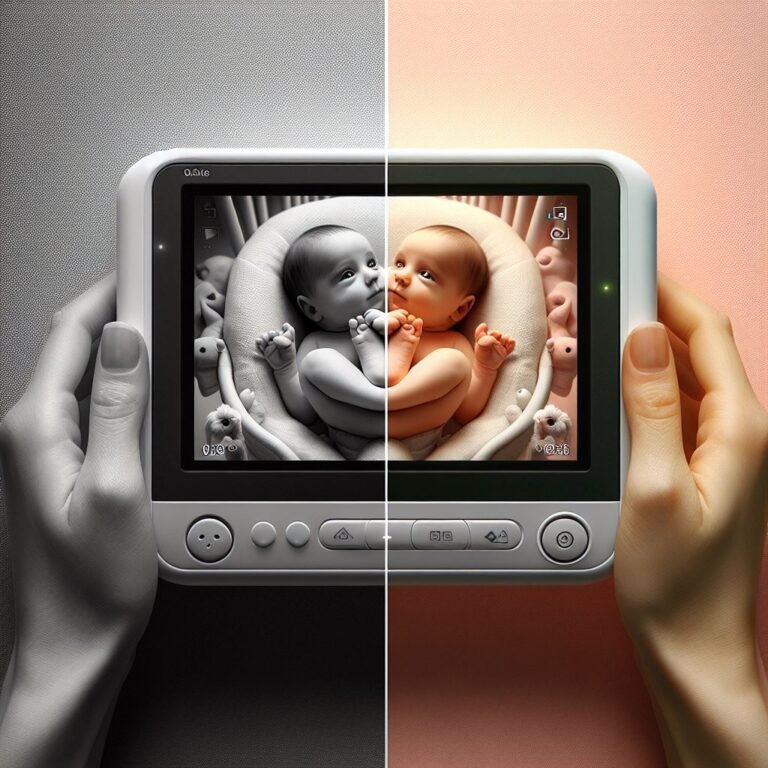What Are Some Baby’s Health and Safety Concerns That New Parents Should Be Aware of Regarding Their Baby’s Health and Safety
In the delicate realm of parenthood, new parents embark on a journey filled with boundless love and responsibility.
As they cradle their precious bundle of joy, it is crucial for them to be vigilant about their baby’s health and safety
This article serves as a compass, guiding parents through the labyrinth of health concerns they should be aware of.
From sleep safety and nutrition to common illnesses and vaccinations, we aim to empower parents with the knowledge they need to provide a nurturing and secure environment for their little one.
Here are some health concerns that new parents should be aware of regarding their baby’s health and safety.
Key Takeaways
- Sleep safety is crucial for infants, including placing them on their backs on a firm mattress and avoiding soft bedding and hazards in the sleep area.
- Breast milk is the best source of nutrition for infants, but if breastfeeding is not possible, formula milk can be used. Introduce solid foods gradually and avoid giving babies foods high in salt, sugar, or unhealthy fats.
- Common illnesses and symptoms in babies include frequent colds and coughs, diaper rash, and mild fevers. Proper treatment and monitoring are necessary for these ailments, and seeking appropriate medical advice is important.
- Vaccinations and immunizations are essential for protecting babies from diseases. Timely vaccinations develop immunity and prevent the spread of contagious diseases, so it is important to consult healthcare providers for recommended vaccinations and schedules.
Sleep Safety
While many new parents may underestimate the importance of sleep safety, it is crucial to prioritize and educate themselves on the various safety measures that should be implemented to ensure their baby’s health and safety.
A newborn spends a significant amount of time sleeping, and creating a safe sleep environment is essential to reducing the risk of Sudden Infant Death Syndrome (SIDS) and other sleep-related accidents. It is recommended that infants sleep on their backs on a firm mattress in a crib or bassinet that meets safety standards. Soft bedding, such as pillows, blankets, and stuffed animals, should be avoided to prevent suffocation.
Additionally, keeping the baby’s sleeping area free from hazards, such as cords or loose objects, is vital. By following these sleep safety guidelines, parents can provide a secure and peaceful sleep environment for their little ones.
Nutrition and Feeding
Proper nutrition is essential for a baby’s growth and development. New parents should be aware of the importance of providing a balanced and age-appropriate diet. Babies have specific nutritional needs that must be met to support their rapid growth and cognitive development.
Breast milk is the best source of nutrition for infants during their first six months of life. It provides all the necessary nutrients and antibodies to protect against infections. If breastfeeding is not possible, formula milk can be used as an alternative.
As the baby grows, solid foods should be introduced gradually. This process starts with pureed fruits and vegetables and eventually includes a variety of foods from different food groups. It is important to avoid giving babies foods that are high in salt, sugar, or unhealthy fats.
New parents should consult with a pediatrician or a registered dietitian for guidance on their baby’s specific nutritional needs. By providing a balanced and age-appropriate diet, parents can ensure that their baby receives the necessary nutrients for optimal growth and development.
Common Illnesses and Symptoms
Some common illnesses and symptoms regarding some health concerns that new parents should be Aware of regarding their baby’s health, safety and well-being
that new parents should be aware of regarding their baby’s health and safety include:
- Frequent colds and coughs: These are common in infants due to their immature immune systems. They can cause discomfort and difficulty breathing, requiring proper treatment and monitoring.
- Diaper rash: This is another common ailment that affects babies, resulting from prolonged exposure to wetness or soiled diapers. It is important to keep the diaper area clean and dry to prevent this condition.
- Mild fevers: These are also common in babies and are often a sign of the body fighting off an infection. However, it is crucial for parents to monitor their baby’s temperature and seek medical attention if the fever persists or worsens.
New parents should be familiar with these common ailments in order to provide the necessary care and attention to their baby’s health and safety. They should remain vigilant and seek appropriate medical advice to ensure the well-being of their baby.
Vaccinations and Immunizations
Vaccinations and immunizations play a critical role in safeguarding the health and well-being of newborns. It is important for new parents to be aware of the importance of vaccinating their babies’ health and safety to protect them from various diseases. Vaccinations are designed to stimulate the immune system to produce antibodies that fight off specific infections.
By receiving timely vaccinations, babies can develop immunity against diseases such as measles, polio, whooping cough, and hepatitis B. Immunizations not only protect the individual child but also contribute to the overall health of the community by preventing the spread of contagious diseases.
New parents should consult with their healthcare providers to ensure that their babies receive the recommended vaccinations according to the recommended schedule. By prioritizing vaccinations, parents can provide their babies with a strong foundation for a healthy and safe future.
Babyproofing and Home Safety
To ensure the health, safety, and well-being of their baby, new parents must take proactive measures and prioritize babyproofing their home.
Babyproofing is the process of making the living environment safe for infants and toddlers by identifying potential hazards and implementing safety measures.
It is essential for new parents to create a safe space where their baby’s health and safety can be explored and grown without the risk of accidents or injuries.
Some key areas to focus on when babyproofing include securing furniture and appliances to prevent tip-overs, installing safety gates to restrict access to stairs and other dangerous areas, covering electrical outlets, and ensuring that cords and blinds are out of reach.
Additionally, it is important to store hazardous substances such as cleaning products and medications in locked cabinets or high shelves to prevent accidental ingestion.
Frequently Asked Questions
What Are Some Health Concerns That New Parents Should Be Aware of Regarding Their Baby’s Health and Safety?
It is important for new parents to be aware of their baby’s sleep patterns and ensure they are getting enough rest. Signs of adequate sleep include regular sleep schedules, contentment during wakeful periods, and age-appropriate total sleep duration.
What are some signs that my baby may have a food allergy?
Some signs that a baby may have a food allergy include rashes, hives, vomiting, diarrhea, and difficulty breathing. It is important for new parents to be aware of these signs and seek medical advice if they suspect a food allergy in their baby.
When should I be concerned about my baby’s fever?
When should new parents be concerned about their baby’s fever? It is important for parents to be aware of the signs and symptoms of a fever in infants and to seek medical attention if necessary.
What are some alternative vaccination schedules I can consider for my baby?
When considering alternative vaccination schedules for your baby, it’s important to consult with a healthcare professional. They can provide guidance on the potential risks and benefits, ensuring the safety and well-being of your child.
How can I ensure that my baby is safe while traveling in a car?
Ensuring the safety of a baby while traveling in a car is of utmost importance. Parents should prioritize the use of proper car seats, ensure correct installation, and follow safety guidelines to minimize the risk of injury.
Conclusion
In conclusion, new parents must prioritize their baby’s health and safety by addressing various health concerns.
Ensuring sleep safety, providing proper nutrition and feeding, recognizing common illnesses and symptoms, and staying updated with vaccinations and immunizations are essential.
Additionally, for a baby’s health and safety, babyproofing and maintaining a safe home environment are crucial.
By being vigilant and proactive in these areas, parents can create a healthy and secure environment for their children’s growth and development.



